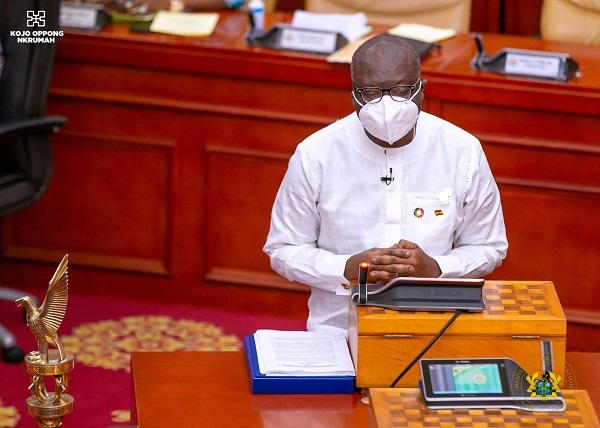Finance Minister, Ken Ofori-Atta, at the Mid-Year Budget Review before parliament on Monday, July 25, 2022, admitted that we are in difficult times as a country. The government blamed our current poor state on the coronavirus pandemic and the Russia-Ukraine war. Is this not a cliché and somewhat irresponsible considering that Ghana was not the only country to be affected by these two unfortunate events? Other countries are rapidly recovering from these events. Meanwhile, this can be scarcely said about our country. We are still playing the blame game while our economy is struggling so badly and the lives of Ghanaians remain in jeopardy.
The Minister furthered that, despite the economic hardship in the country, the government has faith in the “overcoming” spirit of Ghanaians. A spirit that does not “cower in the wake of difficulty”. An overcoming spirit. One that does not give in to challenges? I find this statement rather interesting! What exactly are Ghanaians expected to overcome, the government or the economic crisis?
We pay our taxes and expect that the government works for us to bring about development in the country, and as a result, improve our standards of living. Sadly, we are experiencing the exact opposite, despite all the resources that have been made available to the government through loans and grants, and even the infamous, E-levy. The inflation rate is high, fuel costs are hiking, food prices are skyrocketing, and salaries remain the same.
I want to tell the Finance Minister that there is no “overcoming spirit” left in Ghanaians: many of the Ghanaian people have lost confidence in the government, and indeed their cause is justified.
Another matter of interest is why the government took this long to acknowledge that the economy is in crisis. I believe that they knew this very well but failed to be transparent with Ghanaians. On April 7, 2022, at the closing of the National TESCON Training and Orientation Conference held at the Pentecost Convention Centre at Gomoa Fetteh in the Central Region, Dr. Bawumia asserted that despite the COVID-19 pandemic, the agricultural, industrial, and service sectors all experienced higher average growths than they had in the previous four years and the industrial sector had also experienced double growth. This created the impression that the economy was doing so well. Was that really the case? I am sure that Ghanaians will be the best judge.
Furthermore, at a public lecture held in Accra on Monday, March 7 on the theme: “On the state of the nation’s economy and politics, 65 years after independence, the path to sustainable development and democratic consolidation”, Mr. Pierre Laporte, the country director for Ghana, Liberia, and Sierra Leone at the World Bank, urged the Ghanaian government to be transparent with its citizens concerning the state of the economy.
Before the coronavirus pandemic, in his opinion, the economy was in trouble. He added that the statistics spoke for themselves. He described Ghana’s predicament as really dire and continued that The World Bank had been open in discussions with the government officials and the President about the reality that Ghana was confronted with a very difficult road ahead to restore macro sustainability in the country
The Way Forward
The government must lead with transparency and be more accountable to the good people of Ghana instead of forming impressions that do not exist. Indeed, acknowledging that there is a problem is part of solving the problem. Government must now look at solutions to the economic hardship in the country. Given the IMF bailout, and other measures put in place, I hope that the suffering of Ghanaians will be alleviated.

